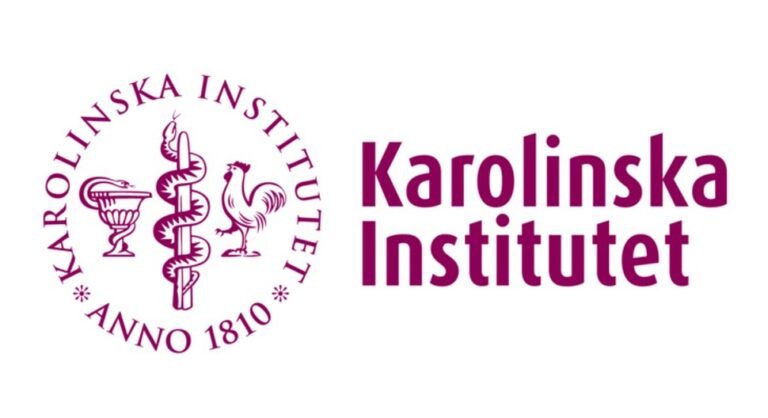Do you want to contribute to top quality medical research?
To be a doctoral student means to devote oneself to a research project under supervision of experienced researchers and following an individual study plan. For a doctoral degree, the equivalent of four years of full-time doctoral education is required.
The research group
We welcome applications to join our research team within the Neuroimmunology Unit at the Centre for Molecular Medicine as a PhD student in neuroimmunology. You will join André Ortliebs team in Tomas Olsson´s group (https://www.cmm.ki.se/research-groups-teams/tomas-olsson-group/andre-ortlieb-group/)
We are part of a constellation of highly collaborative groups working on different aspects of neuroinflammation. We offer a unique opportunity to study antigenic immune responses in multiple sclerosis (MS) using a variety of immunological approaches and animal models.
The doctoral student project and the duties of the doctoral student
The project focuses on studying MS autoantigens in general, and those expressed in endothelium in particular, in the development of central nervous system inflammation. To that end we will use both spatial transcriptomics as well as single cell RNAseq techniques to study patterns of expression and tissue distribution. To validate those targets functionally, we will carry out both human and mouse protein production and purification, animal experiments, flow cytometry and immunofluorescence approaches and in vitro cell co-cultures. Given its novelty, the student should be ready to engage in troubleshooting different experimental approaches.
What do we offer?
A creative and inspiring environment full of expertise and curiosity. Karolinska Institutet is one of the world’s leading medical universities. Our vision is to pursue the development of knowledge about life and to promote a better health for all. At Karolinska Institutet, we conduct successful medical research and hold the largest range of medical education in Sweden. As a doctoral student you are offered an individual research project, a well-educated supervisor, a vast range of elective courses and the opportunity to work in a leading research group. Karolinska Institutet collaborates with prominent universities from all around the world, which ensures opportunities for international exchanges. You will be employed on a doctoral studentship which means that you receive a contractual salary. Employees also have access to our modern gym for free and receive reimbursements for medical care.
Eligibility requirements for doctoral education
In order to participate in the selection for a doctoral position, you must meet the following general (A) and specific (B) eligibility requirements at latest by the application deadline.
It is your responsibility to certify eligibility by following the instructions on the web page Entry requirements (eligibility) for doctoral education.
A) General eligibility requirement
You meet the general eligibility requirement for doctoral/third-cycle/PhD education if you:
- have been awarded a second-cycle/advanced/master qualification (i.e. master degree), or
- have satisfied the requirements for courses comprising at least 240 credits of which at least 60 credits were awarded in the advanced/second-cycle/master level, or
- have acquired substantially equivalent knowledge in some other way in Sweden or abroad.*
Follow the instructions on the web page Entry requirements (eligibility) for doctoral education.
*If you claim equivalent knowledge, follow the instructions on the web page Assessing equivalent knowledge for general eligibility for doctoral education.
B) Specific eligibility requirement
You meet the specific eligibility requirement for doctoral/third-cycle/PhD education if you:
– Show proficiency in English equivalent to the course English B/English 6 at Swedish upper secondary school.
Follow the instructions on the web page English language requirements for doctoral education.
Verification of your documents Karolinska Institutet checks the authenticity of your documents. Karolinska Institutet reserves the right to revoke admission if supporting documents are discovered to be fraudulent. Submission of false documents is a violation of Swedish law and is considered grounds for legal action.
(A) and (B) can only be certified by the documentation requirement for doctoral education.
Skills and personal qualities
Skills
Required
- The project demands in depth cell biology and immunology knowledge, as well as experience in handling rodents.
- Cell biology and immunology knowledge
- Basic knowledge of molecular biology and biochemistry
- Experience in in vitro cell culturing systems
- Experience in animal experimentation, primarily mouse (FELASA accreditation is a plus), and willingness to perform experiments in rodents
Meritorious
- Experience of Computational biology
Personal qualities
- A genuine interest in science and immunology
- Curiosity and creativity
- Flexibility and adaptability
- A collaborative and social nature
- The ability to handle negative research results
Terms and conditions
The doctoral student will be employed on a doctoral studentship maximum 4 years full-time.
Application process
Submit your application and supporting documents through the Varbi recruitment system. Use the button in the top right corner and follow the instructions. We prefer that your application is written in English, but you can also apply in Swedish.
Your application must contain the following documents:
– A personal letter and a curriculum vitae
– Degree projects and previous publications, if any
– Any other documentation showing the desirable skills and personal qualities described above
– Documents certifying your general eligibility (see A above)
– Documents certifying your specific eligibility (see B above)
Selection
A selection will be made among eligible applicants on the basis of the ability to benefit from doctoral education. The qualifications of the applicants will be evaluated on an overall basis.
Karolinska Institutet uses the following bases of assessment:
– Documented subject knowledge of relevance to the area of research
– Analytical skill
– Other documented knowledge or experience that may be relevant to doctoral studies in the subject.
All applicants will be informed when the recruitment is completed.
Read more about the Department of Clinical Neuroscience
Read more about the research group you will be part of



